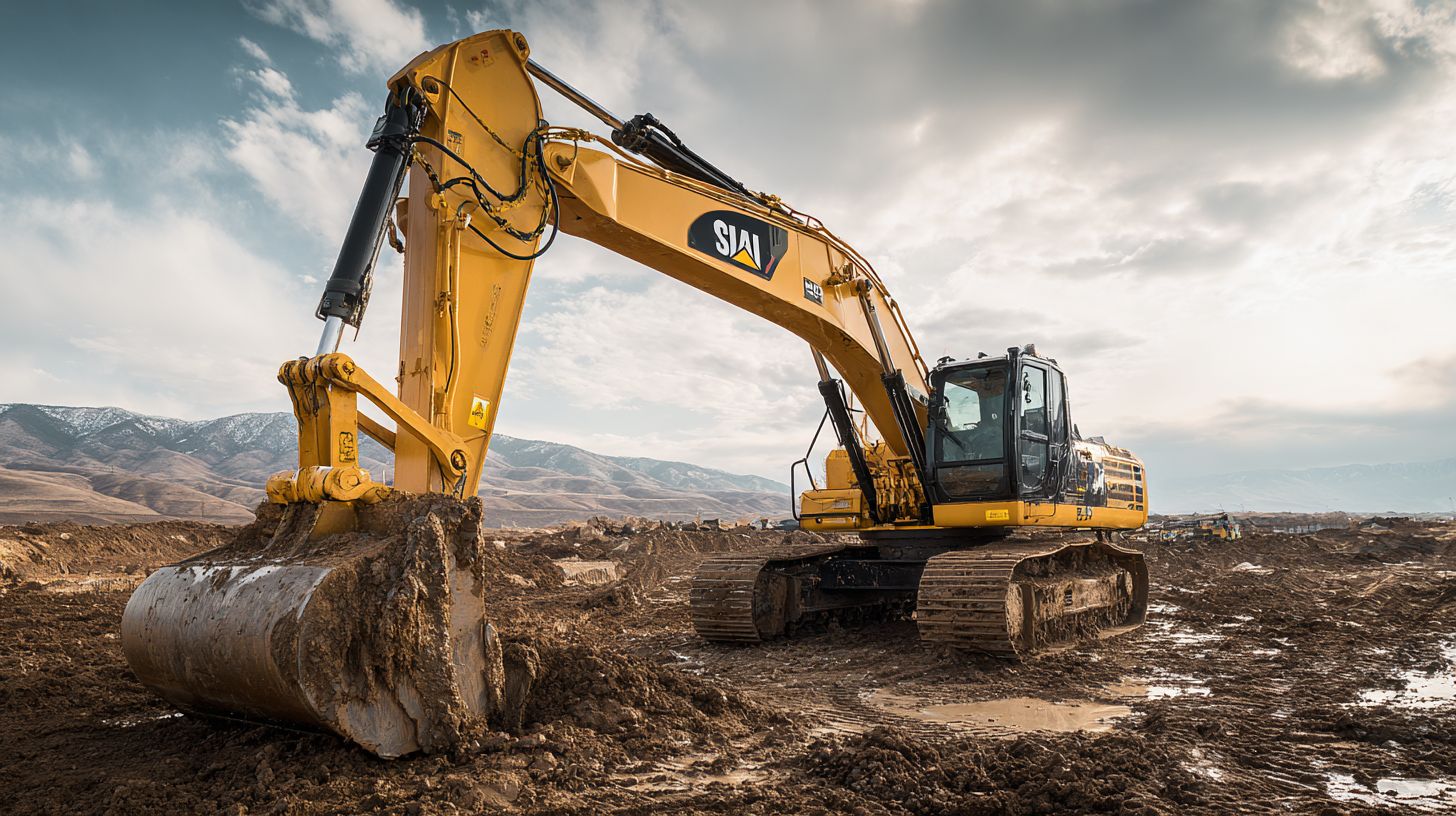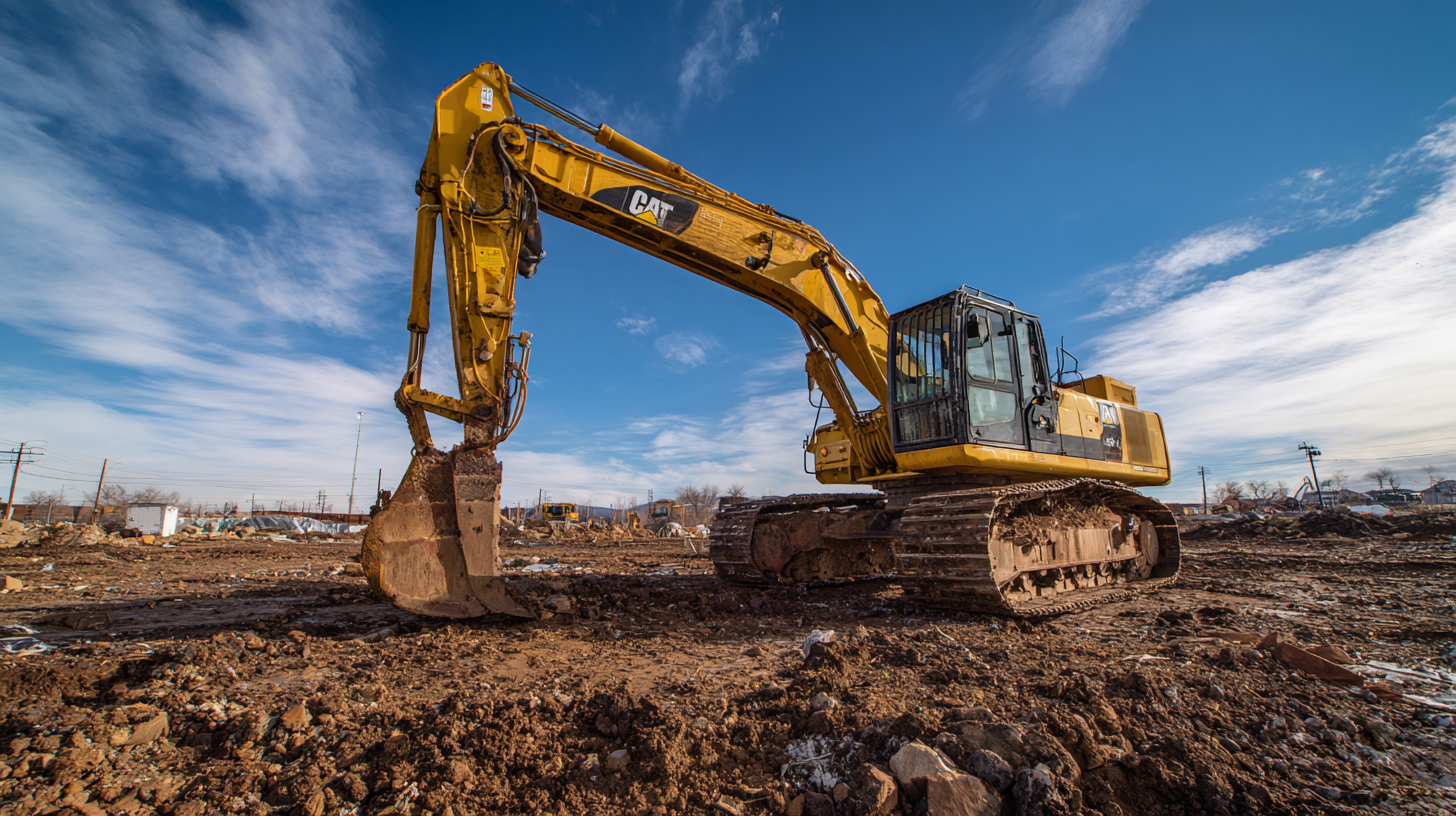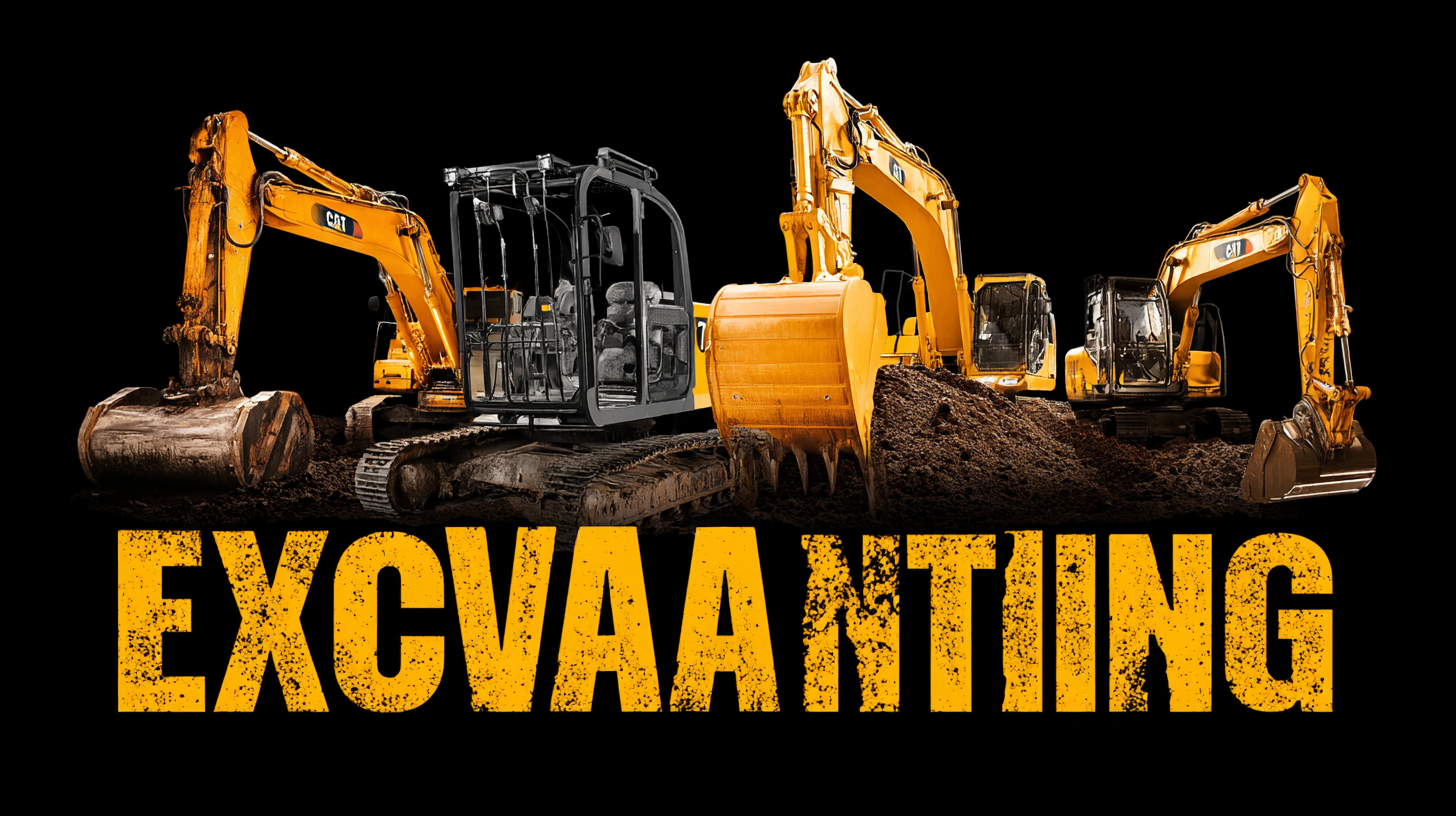Blog
The Ultimate Guide to Choosing the Best Excavating Equipment for Your Projects
Selecting the right excavating equipment is crucial for the success of any construction or landscaping project. According to a report by Research and Markets, the global excavating equipment market is projected to reach $51.5 billion by 2026, driven by increased infrastructure development and urbanization.
 The effectiveness and efficiency of your project can be significantly impacted by the machinery chosen, making it essential to understand the different types of excavating equipment available. From traditional hydraulic excavators to modern compact excavators, each type serves specific purposes and functions.
This guide aims to help you navigate through the various options, empowering you to make informed decisions that align with your project requirements, budget, and operational efficiency. Choosing wisely can not only enhance productivity but also minimize downtime and reduce overall project costs.
The effectiveness and efficiency of your project can be significantly impacted by the machinery chosen, making it essential to understand the different types of excavating equipment available. From traditional hydraulic excavators to modern compact excavators, each type serves specific purposes and functions.
This guide aims to help you navigate through the various options, empowering you to make informed decisions that align with your project requirements, budget, and operational efficiency. Choosing wisely can not only enhance productivity but also minimize downtime and reduce overall project costs.
Identify Key Factors in Selecting Excavating Equipment for Your Project's Needs
When selecting excavating equipment for your projects, several key factors must be considered to meet the specific needs of your construction tasks. The autonomous construction equipment market is experiencing significant growth, driven by advancements in technology and the increasing demand for efficiency in the industry. According to recent industry analysis, the market for wheeled excavators alone surpassed $10.7 billion in 2022. This upward trajectory is expected to continue, with an estimated compound annual growth rate (CAGR) of around 5.5% from 2023 to 2032.

In choosing the best equipment, it's essential to analyze various types, including earth-moving, material handling, screening, mixing, and excavating equipment. Furthermore, the level of automation—ranging from semi-autonomous to fully autonomous machines—also plays a crucial role in decision-making. With the construction sector placing an increasing emphasis on decarbonization, integrating equipment that aligns with sustainability goals can significantly influence project outcomes and enhance operational efficiency. Understanding these key factors is vital to making informed choices that will benefit your project in the long run.
Understand Different Types of Excavating Equipment and Their Applications
When selecting excavating equipment for construction projects, it's essential to understand the various types available and their specific applications. Excavators, loaders, dozers, and cranes each serve distinct purposes, suitable for different tasks on a job site. For instance, excavators are primarily used for digging and breaking ground, making them ideal for foundation work or trenching. In contrast, loaders are best suited for moving materials, whereas dozers excel in grading and leveling terrain.
As the demand for heavy construction equipment grows—driven by factors like rapid urbanization and infrastructure development—prospective buyers must also consider the advancements in technology. Electric construction equipment is rising in popularity due to its environmental benefits and lower operating costs. Innovations in design have led to better battery performance and optimized machinery, making electric options competitive with traditional diesel-powered equipment. Choosing the right excavating equipment not only improves efficiency but also contributes to sustainable construction practices.
Assessing Equipment Performance: Durability, Efficiency, and Maintenance Costs
When selecting excavating equipment for your projects, understanding the performance metrics—durability, efficiency, and maintenance costs—is crucial. Durability ensures that the equipment can withstand harsh job site conditions and continue to operate effectively over time. Investing in high-quality materials and robust design can lead to longer lifespans, reducing the need for frequent replacements and associated costs. Choosing machines that have been proven to endure tough environments not only boosts productivity but also enhances safety by minimizing the risk of equipment failure during critical tasks.

Efficiency plays a pivotal role in maximizing productivity. Modern excavating equipment often comes equipped with advanced technology that optimizes fuel consumption and enhances maneuverability. Features like automatic cut depth control and variable speed settings can result in faster project completion times while also lowering operational costs. Furthermore, researching and comparing specifications across different models can help you choose machinery that aligns best with your specific project needs.
Lastly, maintenance costs are a key consideration that can significantly impact your budget over the equipment's lifespan. Regular maintenance is essential to keep machinery in optimal condition, but some models are designed for easier upkeep, utilizing fewer parts and more reliable systems. Understanding the long-term maintenance requirements and costs associated with various options will enable you to make a more informed decision, ensuring your investment aligns with both immediate project demands and future financial planning.
Evaluating Supplier Reputation: Industry Certifications and Customer Reviews
When selecting excavating equipment for your projects, evaluating supplier reputation is crucial. One of the most effective ways to gauge a supplier's reliability is through industry certifications. Certifications from respected organizations indicate that the supplier adheres to high standards of quality and safety in their equipment. These credentials not only reflect the supplier's professionalism but also reassure you that the machinery you choose meets industry benchmarks. It's essential to verify these certifications before making any commitments, as they can significantly impact the efficiency and safety of your project.
In addition to industry certifications, customer reviews play a vital role in assessing a supplier's reputation. Reading through testimonials and ratings can provide insight into the experiences of other buyers. Look for feedback regarding the equipment's performance, durability, and the supplier's customer service. Positive reviews can indicate a trustworthy supplier, while negative comments may serve as red flags. Combining certification checks with customer feedback creates a more comprehensive view of a supplier, ensuring you choose the best excavating equipment for your needs.
Comparing Rental vs. Purchase: Cost-Effectiveness in Excavating Equipment Choices
When embarking on an excavation project, one of the pivotal decisions is whether to rent or purchase equipment. According to a report by the American Rental Association, the construction equipment rental market is projected to reach $60 billion by 2023, reflecting a growing trend among contractors who seek flexibility and reduced upfront costs. Renting can significantly lower initial expenses, as it allows access to advanced machinery without the burden of full ownership. This approach is particularly advantageous for short-term projects, where the rental terms can be tailored to specific needs, saving capital for other critical areas of the operation.
On the other hand, purchasing equipment is often deemed more cost-effective in the long run, especially for companies with consistent excavation needs. A study by EquipmentWatch indicates that owning machinery can reduce overall costs by up to 20% compared to renting over a five-year period, factoring in depreciation, maintenance, and operational costs. This strategy also offers the convenience of having machinery readily available, minimizing downtime. Ultimately, the decision to rent or buy should be guided by project duration, equipment usage frequency, and financial considerations, enabling project managers to optimize their operational efficiency while controlling costs.
